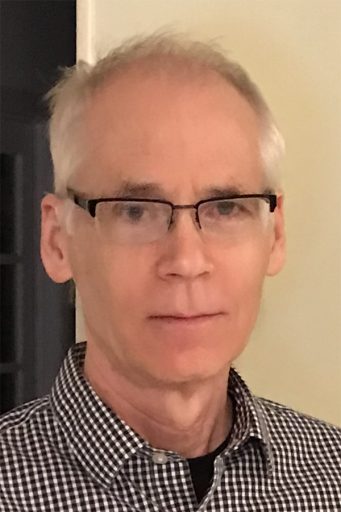
When you do something for which you are to blame, how long are you actually blameworthy for your misdeed? Does culpability evaporate once you are forgiven? These are among the questions one Florida State University philosopher is tackling in a new article published this winter in the international journal Philosophical Studies.
Randolph Clarke, a professor with the Department of Philosophy in the FSU College of Arts and Sciences, analyzes key ingredients of blame, responsibility, guilt and more in his new research article, “Still Guilty.” Clarke’s research contributes to ongoing philosophical debates about blameworthiness.

“We’re all familiar with blame: we dish it out and receive it. Sometimes we’re mistaken in doing so, but sometimes the person blamed deserves it,” Clarke said. “For a while, I’ve been thinking about what blame is, what it is to deserve blame and what factors make someone deserving of blame.”
In his paper, Clarke argues that once someone is blameworthy for an action, they will always remain so, regardless of if they apologize or make amends to the person(s) they’ve hurt. Such actions might ameliorate their personal feelings of guilt and restore a relationship with the wronged party, but the blameworthiness remains.
“I thought: apologizing and making amends are good things to do, but they don’t make you no longer blameworthy,” Clarke said. “As I see it, once you are blameworthy for something, you are always blameworthy for it.”
The inspiration for the paper came from Clarke’s discovery that many philosophers reason that when a person becomes blameworthy for something, they can take action to make themselves no longer blameworthy. For example, when they feel guilt or remorse for something they’ve done, they can apologize to those they’ve hurt and make amends. This would then alleviate the sense of guilt
Clarke adds that many philosophers who hold this view say that one is blameworthy only if they deserve to suffer guilt. They note that you can suffer all the guilt that you deserve to suffer for a given offense, and once you do, they say you are no longer blameworthy for that offense. For example, a person feeling guilty for a crime committed many years ago might have, at some point, “suffered enough.”
“They’re right about this much: you can suffer all of the guilt that you deserve to suffer for a given offense,” Clarke said. “And I grant a further point: it can come to pass that no one should blame you any longer for a certain past offense. But neither of these things imply that you can cease to be blameworthy. You can remain blameworthy even though you don’t deserve to feel guilty any longer and even though no one should blame you any longer.”
When it comes to long-dead villains of the past who can no longer suffer guilt or remorse, with Clarke offering up the example of Adolf Hitler, our collective blame of them can still be appropriate and they can still be deserving of it, Clarke argues. He notes that the view he argues against implies, wrongly, that blameworthiness could not be posthumous.
Clarke hopes readers take away a few key distinctions; the difference between being blameworthy and deserving to feel guilt or remorse, and between the question of whether someone is blameworthy and the question of whether we, or anyone, should blame that person.
“Sometimes we forgive, and sometimes that’s the right thing to do—we shouldn’t go on blaming,” Clarke said. “But the person who is forgiven remains blameworthy. Thus, whether someone is blameworthy and whether they should be blamed are distinct matters.”
Clarke, whose philosophical research focuses on human agency, particularly intentional action, free will and moral responsibility, has published several books and papers on these topics as well as papers on practical reason, mental causation and dispositions during his more than 30 years in the field.
“I study aspects of human agency and moral practice,” Clarke said. “Human beings are fascinating, and these aspects of our social lives are endlessly so.”
Piers Rawling, chair of the Department of Philosophy, said Clarke’s research consistently challenges existing paradigms and offers fascinating new takes on philosophical theories, and his area of study—philosophy of action—covers a wide range of issues, including what makes us morally responsible for our actions.
“Florida State University’s philosophy department is ranked No. 1 in the world in the philosophy of action by the Philosophical Gourmet Report and the ranking of graduate programs in the English-speaking world,” Rawling said. “Professor Randolph Clarke is a major contributor to this success.”
For more information, visit https://philosophy.fsu.edu/.




